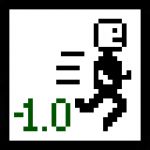Not a member of Pastebin yet?
Sign Up,
it unlocks many cool features!
- Key conclusions:
- LoLK takes the formula of ISC and then strips away all the freedom from it.
- PointDevice feels like a neat idea thrown in for being neat, with every other decision in the game being derived from that, without taking into account the implications of the original idea or its consequences.
- ~~~~~~~~~~~~~~~~~~~~~~~~~~~~~~~~~~~~~~~~~~
- The context is a discussion about LoLK (Touhou 15) and comparing it to a full game version of ISC (Touhou 14.3).
- The problem with ISC as a full game vs. ISC as a scene select is multi-faceted, though.
- ISC worked so well because you had so many options for how to deal with any given pattern, and you didn't have to do them in any given order, and if you wanted to you could even completely skip patterns! And though you could (and I did!) do everything without items, it was never forced and item use was only limited by scene.
- LoLK takes that pattern design philosophy and applies it to a full game. It *doesn't* work because you have one option, dodge. Sure, you have bombs, but you'll run out and then have to dodge. No further bombs (items), so you absolutely have to dodge everything, which means go through everything in order, no skips.
- LoLK takes the formula of ISC and then strips away all the freedom from it.
- ~~~~~~~~~~~~~~~~~~~~~~~~~~~~~~~~~~~~~~~~~~
- Another issue with LoLK, play session length:
- In every other Touhou game, any given attempt would last a half hour or so if it cleared. Maybe longer if you were a lower power shot type, much longer with some scoreruns (PCB goes over an hour), but those are the exception. But with PointDevice, one singular attempt can last several consecutive hours. That could be considered a good thing, but it just runs so opposed to everything else in the series, so that it sticks out wrong. It ends up artificially lengthening the game in a frustrating way, rather than improving by playing you're improving by brute force. As mentioned above, this takes away freedom.
- Though 'Legacy' mode still exists, the game is unbalanced and clearly not designed around it. The danmaku is unchanged, so all the problems that are minor annoyances in PointDevice will force you to remember they exist or steal a life. The danmaku contains so many cheapshots or 'memorize or die' moments (Stage 5 is a huge culprit here).
- The extra stage plays like Legacy, thankfully. It's easily the best part of the game as the patterns actually feel designed to be fair, with a few exceptions. There's a few huge cheapshots and patterns that take some memorization to work out how to deal with, but ultimately that's to be expected from an extra stage. The cheapshots, much less so (the circling spell comes to mind here). Finally, the danmaku in the game feels very same-y. It's either circling in some form or micrododging. There's very little macro, and such a huge focus on micro even in the more macro-heavy patterns. Junko's survival card is a huge culprit here, with a macro level 'square' pattern of dodging akin to Princess Tenko being required, but with micrododging to get out of the bullet spawns. It gets worse, however, as there's no real warning and you can easily be unfocused dashing away from the previous wave straight into the next spawn!
- PointDevice feels like a neat idea thrown in for being neat, with every other decision in the game being derived from that, without taking into account the implications of the original idea or its consequences.
- ~~~~~~~~~~~~~~~~~~~~~~~~~~~~~~~~~~~~~~~~~~
Advertisement
Add Comment
Please, Sign In to add comment

